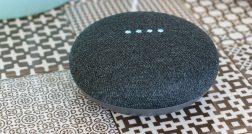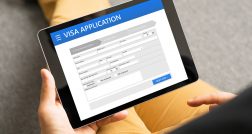It’s All in the Wrist
Wearable technology is changing the game for guest experience.
In the past two years, the Apple Watch has been on the fast track to ubiquity, a prime example of wearable technology gaining widespread acceptance. This has opened the door for greater use of wearables in the travel and entertainment industries, where they can improve guest experience and efficiency.
In May, Universal Orlando launched TapuTapu, an electronic wristband system, at its Volcano Bay water park. The device allows parkgoers to reserve a spot in line for rides and be notified when it’s their turn. It can unlock lockers, pay for purchases (if linked to a credit card), and trigger special effects throughout the park. The wristband is included in the cost of admission and returned at the end of the day. (All personal information is removed at that point, according to Universal.)
Carnival Cruises is taking the wearable experience a step further by making it even more personalized. Starting this November with the Regal Princess, passengers will be sent an Ocean Medallion, a small disc engraved with their name that acts as their ticket and room key and connects them to Carnival’s Ocean Compass network. “The medallion is the persistent identifier for each guest, just like a license plate on your car, and it’s the component that connects every guest with our experience ecosystem,” said Michael Jungen, senior vice president of guest experience design and technology, in Carnival’s keynote address at this year’s Consumer Electronics Show (CES) in Las Vegas.
Guests can access Ocean Compass through an app on their mobile phone or one of the 4,000 screens throughout the ship. The medallion interacts with the system via 7,000 sensors connected by 75 miles of cable and is triple encrypted. Via Ocean Compass, guests can inform the crew of drink preferences or dietary restrictions, schedule massages, or track their family’s location. The screens also provide suggestions based on information guests have already entered into the system.
And the system doesn’t improve just the guest experience but also operational efficiency. “Knowing who you are and what you want means that backstage we can improve the efficiency of how we do things so that it actually lowers the cost of the experience you’re provided,” Joe Pine, author of The Experience Economy, said in Carnival’s CES keynote. One example: As a guest approaches her cabin, her medallion is read by sensors, and by the time she enters the room, the lights are on and the air conditioner is running at her preferred temperature. But when she’s out of the room, the ship can turn off lights and AC, saving energy.
Ocean Compass and Medallion will be rolled out to Carnival’s entire fleet over the next few years. “There’s a big difference between doing something that’s special and something that’s special at scale,” Pine said. “This platform serves as the backbone not only for immersive experiences but also for operational processes, and it’s been engineered for complete and total reliability.”
Image credit: Carnival Cruises




